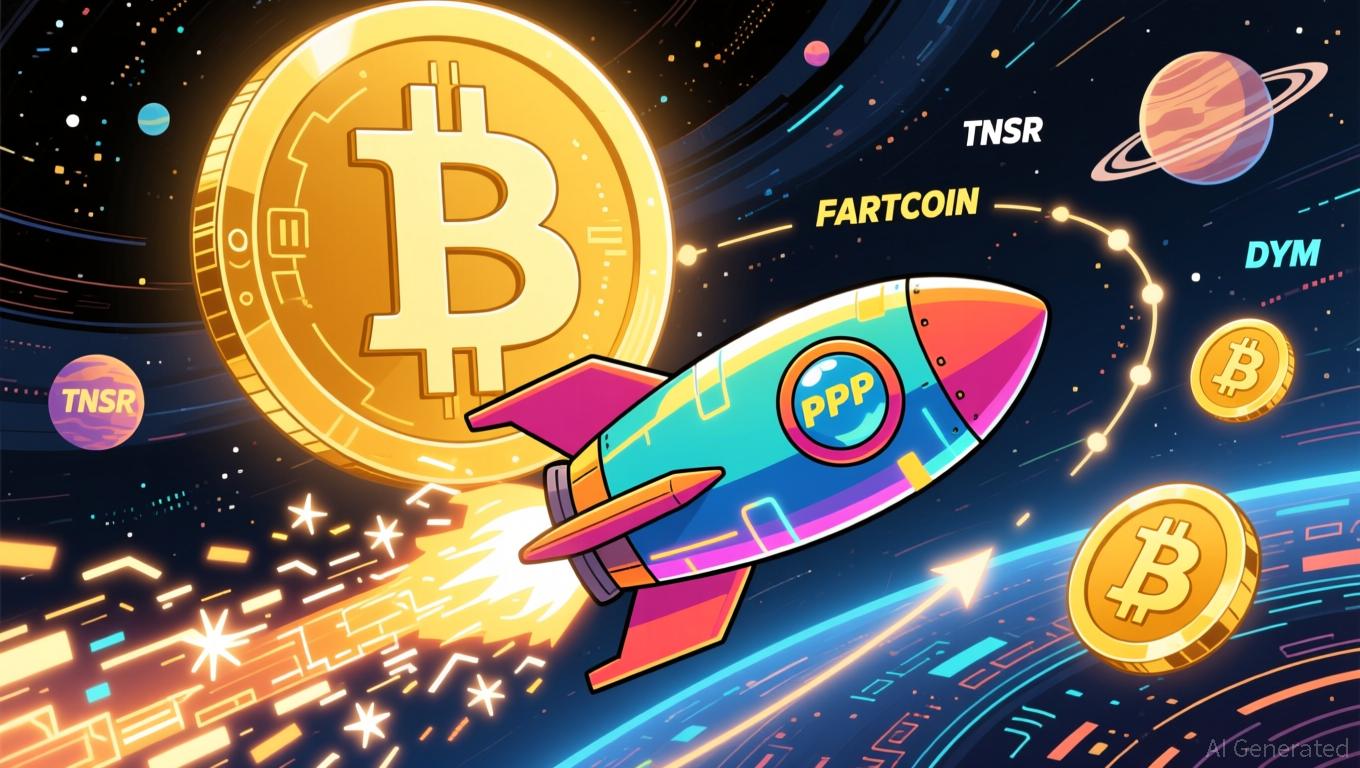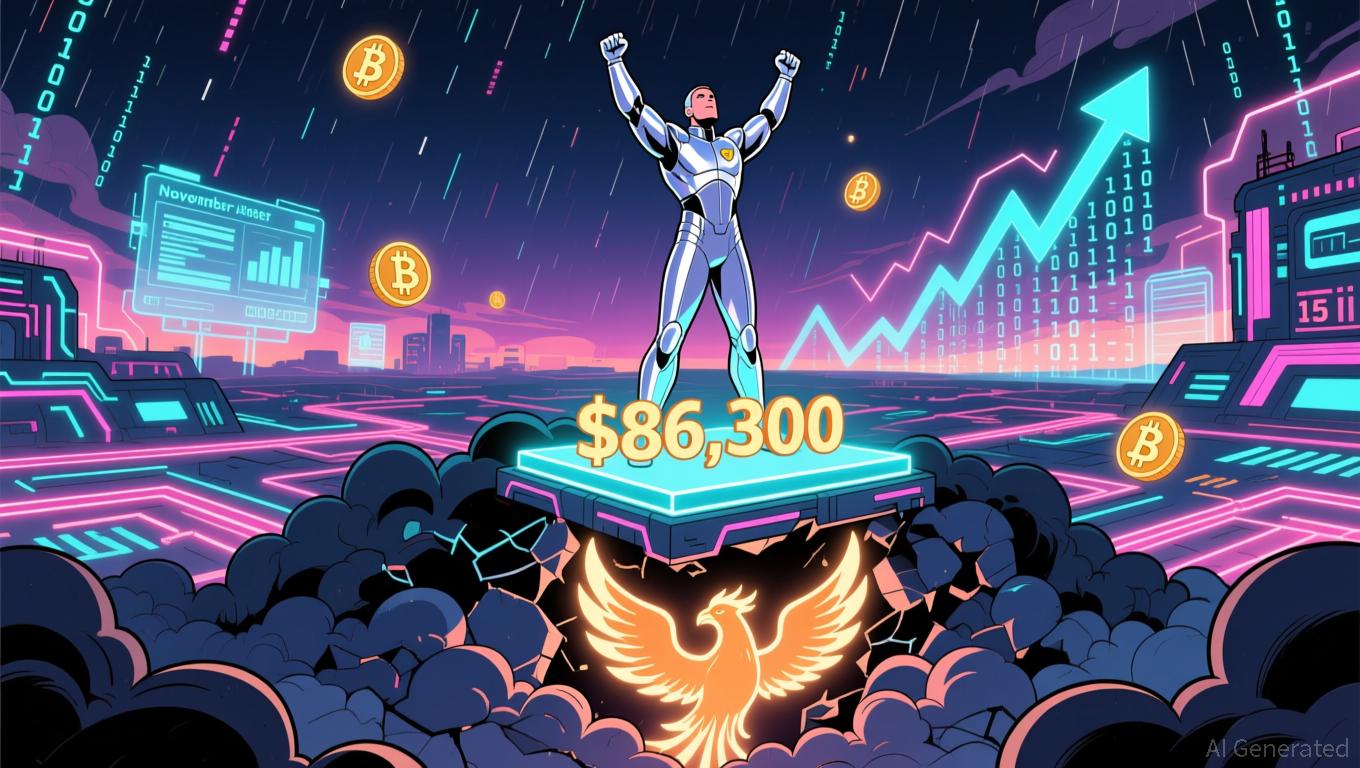Trump Reverses Tariffs: Indian Agricultural Exports Benefit, Yet Major Obstacles Persist
- Trump administration cancels tariffs on Indian agricultural goods like spices and coffee, boosting $1B annual exports amid inflation concerns. - India's Commerce Ministry welcomes exemptions, noting 40% of 2024 agri-exports now qualify for zero-duty U.S. market access. - National Restaurant Association praises move for stabilizing supply chains but warns tariffs on Brazilian beef and Indian toys persist. - U.S. policy shift reflects geopolitical strategy while India focuses on improving export infrastruc
Trump’s latest move to eliminate tariffs on agricultural imports has led to a notable change in U.S. trade strategy, positioning Indian exporters to gain from the adjustment. The White House revealed that duties would be lifted on products like coffee, tea, spices, and tropical fruits—a reversal prompted by increasing calls to tackle inflation and ensure supply chain stability. These exemptions, which will be applied retroactively from November 13, 2025, are projected to
This reduction in tariffs signals a shift away from Trump’s previous strict approach to reciprocal tariffs, which had been put in place in August 2025 to counter trade disparities. While the administration was initially reluctant to grant exemptions, it gradually eased its stance as inflation at home became a bigger concern and legal disputes arose. The most recent changes

The National Restaurant Association, representing the food service sector, welcomed the policy change, describing it as essential for maintaining stable supply chains and reducing cost pressures for restaurants. “Restaurants rely on a consistent and affordable supply of ingredients throughout the year,” said Michelle Korsmo, the association’s CEO. “This measure will help keep menu options varied and prices in check”
Although the tariff reductions are seen as a positive development for Indian agricultural exporters, the Trump administration continues to impose higher tariffs on certain imports, such as Brazilian beef and Indian toys. These ongoing tariffs remain contentious, with
This policy adjustment also highlights wider geopolitical factors. Recent trade deals with nations like Ecuador and Argentina have
As the U.S. and India adapt to these changing trade relations, the immediate effects of the tariff exemptions will likely be most pronounced in agriculture. For Indian exporters, this presents a valuable chance to grow their presence in a vital market, though sustained progress will depend on resolving supply chain bottlenecks and broadening their export portfolio to capture more of the U.S. market.
Disclaimer: The content of this article solely reflects the author's opinion and does not represent the platform in any capacity. This article is not intended to serve as a reference for making investment decisions.
You may also like
Chainlink Connects Blockchain with Traditional Finance, Driving a $35 Billion Boom in Tokenization
- Grayscale highlights Chainlink as blockchain's critical bridge to traditional finance via modular middleware infrastructure. - The platform now leads non-layer 1 crypto by market cap, enabling cross-chain interactions and enterprise compliance across ecosystems. - Tokenization of $35.6B+ assets relies on Chainlink's secure data verification and partnerships with S&P, JPMorgan , and Ondo Finance. - Its DvP settlement pilots and compliance tools address barriers to institutional blockchain adoption, aligni

Xgram Integrates Enterprise-Grade Security with DeFi Management in a Combined Swap Platform
- Xgram launches Personal Manager Support, a first-in-industry service assigning human experts to oversee high-value crypto swaps exceeding $10,000. - The free, global feature offers real-time monitoring, pre-transaction verification, and instant Telegram access to managers, reducing user errors by 94% during beta testing. - Built on self-hosted nodes and cross-chain compatibility for 400+ assets, the non-custodial platform bridges institutional-grade support with DeFi principles. - By addressing a critica

Bitcoin News Today: Bitcoin's Upward Trend Sparks Altcoin Rally, PIPPIN Jumps 148%
- Altcoins rebound as Bitcoin surges past $87,000, with PIPPIN surging 148% to $0.0577 in 24 hours. - TNSR (+49%), FARTCOIN (+22%), and DYM (+21%) follow, driven by Bitcoin's momentum and Abu Dhabi's IBIT holdings. - Analysts cite Bitcoin's "halo effect" and leveraged trading as key drivers, while BexBack introduces crash support tools amid volatility. - Risks persist from sharp price swings, regulatory scrutiny, and recent exploits like Aerodrome Finance's front-end attack. - Market remains in short-term

Bitcoin News Update: Bitcoin Falls Under $87K: Opposing Indicators Suggest Recovery Possible During Market Volatility
- Bitcoin fell below $87,000 in November 2025, triggering $914M in liquidations but retesting key technical support levels. - Contrarian signals emerge as retail fear indices hit yearly lows, historically preceding market reversals amid Fed easing expectations. - Corporate adoption grows: MicroStrategy's $2.8B Q3 profit highlights BTC's institutional value despite retail volatility. - Market dynamics shift with Bitcoin's dominance dropping to 58.8%, suggesting cautious altcoin rotation and regulatory risks
